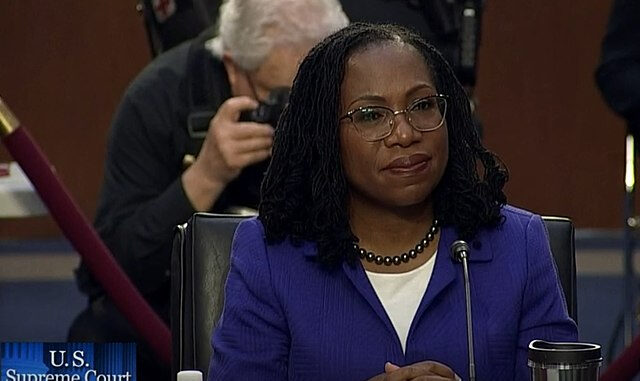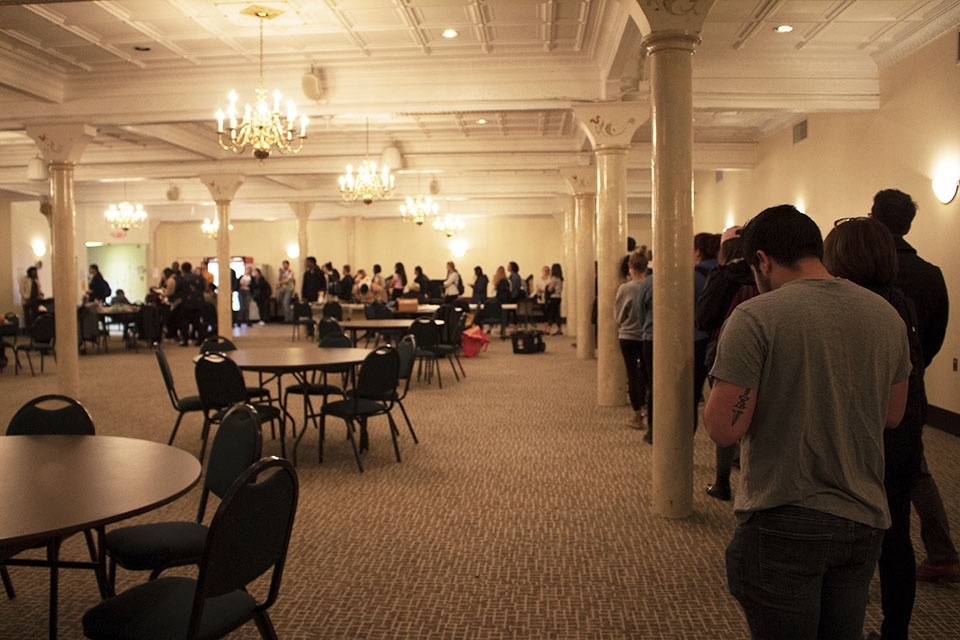
by Zachary Petroff | staff writer
March 31, 2022
Much like the Academy Awards, the United States Senate was looking to spice up its viewership and relevancy by enacting odd and disturbing behavior during the confirmation hearings for Justice Kentaji Brown Jackson. The political spectacle was once again a ridiculous display of partisan hackery filled with political opposition only concerned with producing a sound byte to use on their upcoming political campaigns.
Americans were exposed to yet another confirmation hearing where grown white men were throwing tear-filled temper tantrums whining about the fragility of white male privilege. The world was able to watch in disbelief as U.S. senators reminded the world that blatant racism is not a thing of the past, but remains in the forefront of various lawmakers’ minds.
Americans were also once again subjected to the continuing trend of politicians pushing their political parties’ allegiances over their duty as representatives.
How are we to expect anything different from one of America’s least democratic institutions?
While our judiciary system, even with its flaws, is one of the most “just” in the world – the highest court wields the most power and requires the least amount of democratic participation of any of the branches of the government.
Supreme Court justices are not elected. They are appointed by the president. Once on the bench, justices enjoy a lifetime tenure. They do not have to face re-election or term limits. They are there until, in some cases, the day they die.
The Constitution does not provide any qualifications for a Supreme Court justice. There is not an age, education, profession or citizenship qualification. This is worth noting since, during the Trump administration, there was a very real possibility that we were going to have a former Fox News analyst presiding over the highest court in the land – and he would have been well within his right to do so.
The rules for the path to the Supreme Court are, for lack of a better term, loose. Supreme Court confirmation hearings did not even begin until 1916 – this came about when Woodrow Wilson picked Louis Brandeis, a Jewish man, for the Supreme Court. The idea of a Jewish person sitting on the bench was so controversial that the Senate decided it now needed a process to better vet their nominees – which is a historical way to say – keep the bench white, male and Protestant.
The nomination process, since its inception, is hallowed. As qualified as Jackson is – and she is very qualified – it did not matter. Her fate was sealed when the Senate went blue back in 2020. Just as it was with Brett Kavanaugh and Amy Coney Barrett during the previous president’s administration. Qualifications do not matter – the only thing that matters is the composition of the senate.
The confirmation process was not created to ensure the rights guaranteed by the Constitution, but rather created with the intention of exclusion. It is easy to look at recent history and point to the Republican Party’s antics at the flaw of not only the nomination process but the Supreme Court as an imbalanced body of government. However, the lack of democratic ideology has festered since the inception of the high court. Non-elected lifetime appointments with zero requirements closer align to tyranny and oligarchy than it does with the democratic republic that our country was founded on.
As the demographics, along with the needs of this country, continue to shift, it is becoming clear that the Supreme Court needs reform. The true issues that face this country are more complicated than the run-of-the mill issues that are forced fed down our throats every election cycle.
A non-democratic institution combined with partisan pageantry is leading to the erosion of individual rights of the majority of the American people. It is no longer a matter of “if” but a matter of “when” Roe vs Wade is going to be overturned. Citizen United has allowed corporations to have an unchecked amount of influence in elections leading to the drowning of the voices for average Americans. The court also ruled in favor of the Patriot Act.
The court is going to be composed of six conservative justices to three liberal justices – a composition not reflective of the makeup of this country’s political leaning. Excluding Jackson, the average age on the supreme court is 79 years old. As the country faces unprecedented issues that will include technology, our laws could very much be reflective of senior citizens and the hope that they can grasp the type of concepts needed to put the American people first.
This country has one of the most intricate legal processes in the world. While there are flaws, the wheels of justice move slowly but mostly fairly as a democratic process. The highest court in the land should reflect that.




